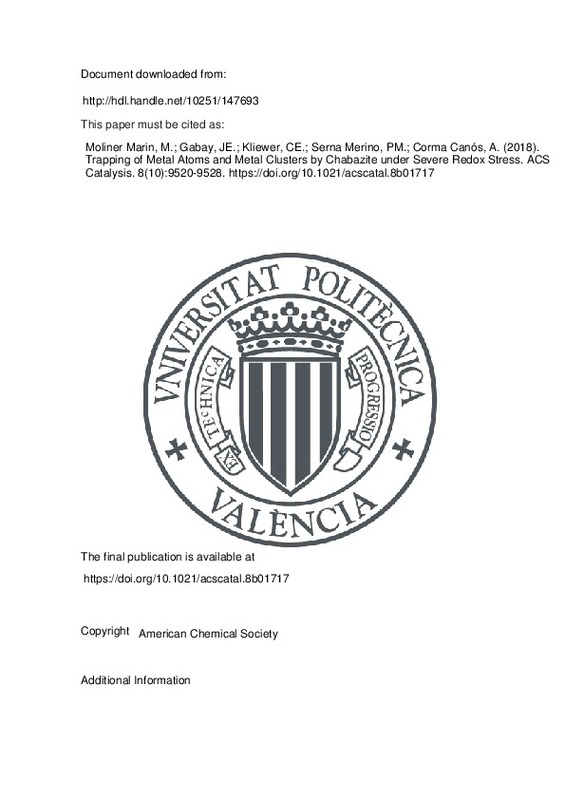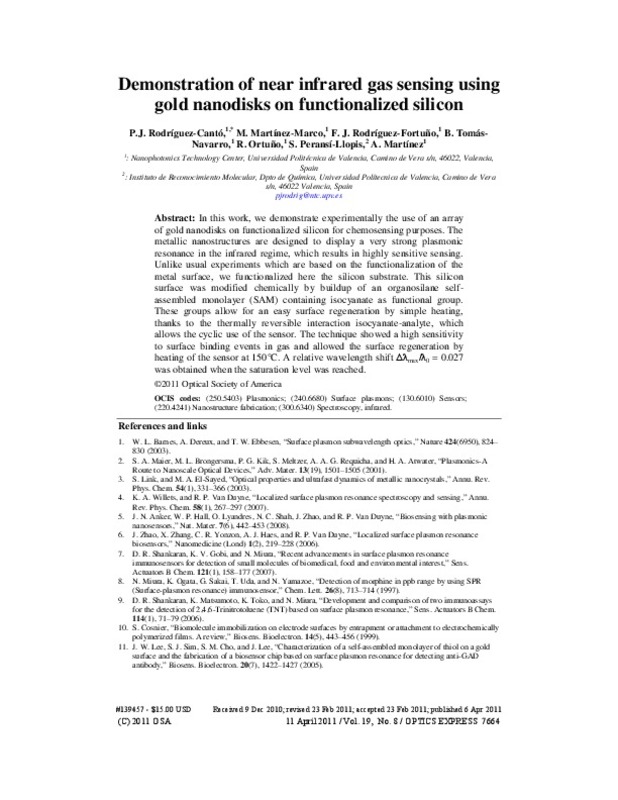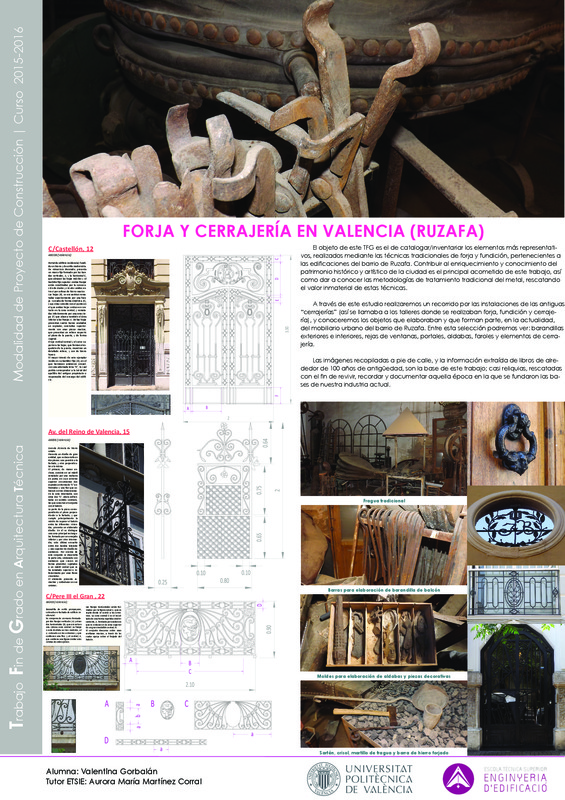Moliner Marin, M.; Gabay, JE.; Kliewer, CE.; Serna Merino, PM.; Corma Canós, A. (2018). Trapping of Metal Atoms and Metal Clusters by Chabazite under Severe Redox Stress. ACS Catalysis. 8(10):9520-9528. https://doi.org/10.1021/acscatal.8b01717
Por favor, use este identificador para citar o enlazar este ítem: http://hdl.handle.net/10251/147693
|
Título:
|
Trapping of Metal Atoms and Metal Clusters by Chabazite under Severe Redox Stress
|
|
Autor:
|

 Moliner Marin, Manuel
Gabay, J. E.
Kliewer, C. E.
Moliner Marin, Manuel
Gabay, J. E.
Kliewer, C. E.
 Serna Merino, Pedro Manuel
Serna Merino, Pedro Manuel

 Corma Canós, Avelino
Corma Canós, Avelino
|
|
Entidad UPV:
|
Universitat Politècnica de València. Departamento de Química - Departament de Química
Universitat Politècnica de València. Instituto Universitario Mixto de Tecnología Química - Institut Universitari Mixt de Tecnologia Química
|
|
Fecha difusión:
|
|
|
Resumen:
|
[EN] The remarkable ability of Al-containing CHA zeolite to trap and stabilize noble single-metal atoms and metal clusters has facilitated the design of sinter-resistant materials for catalytic applications that require ...[+]
[EN] The remarkable ability of Al-containing CHA zeolite to trap and stabilize noble single-metal atoms and metal clusters has facilitated the design of sinter-resistant materials for catalytic applications that require severe reaction conditions. At high temperatures in O-2, volatile MOx species appear to be fixated by the zeolite Al centers to prevent Ostwald-ripening sintering mechanisms, whereas small metal clusters (<100 atoms) are stabilized in H-2 without further aggregation as coalescence by Brownian motion is inhibited because of an encapsulation effect. Evidences of the possibility to trap the metal released from a second adjacent surface (e.g., SiO2 and Al2O3), upon metal migration over micrometer distances, are provided. These properties have opened the possibility to prepare several noble-metal atoms and clusters inside small-pore zeolites, including bimetallic formulation, by simple wetness impregnations or solid-to-solid transformations followed by standard calcination procedures, resulting in improved catalytic performances compared to other nonreducible supports in reactions that subject the catalysts to severe redox stress, such as the water-gas-shift reaction.
[-]
|
|
Palabras clave:
|
Metal trapping
,
CHA zeolite
,
Single-metal atoms
,
Metal clusters
,
Water-gas shift (WGS)
|
|
Derechos de uso:
|
Reserva de todos los derechos
|
|
Fuente:
|
ACS Catalysis. (issn:
2155-5435
)
|
|
DOI:
|
10.1021/acscatal.8b01717
|
|
Editorial:
|
American Chemical Society
|
|
Versión del editor:
|
https://doi.org/10.1021/acscatal.8b01717
|
|
Código del Proyecto:
|
info:eu-repo/grantAgreement/EC/H2020/671093/EU/MATching zeolite SYNthesis with CATalytic activity/
info:eu-repo/grantAgreement/MINECO//MAT2015-71261-R/ES/DISEÑO RACIONAL DE MATERIALES ZEOLITICOS CON CENTROS METALICOS PARA SU APLICACION EN PROCESOS QUIMICOS SOSTENIBLES, MEDIOAMBIENTALES Y ENERGIAS RENOVABLES/
info:eu-repo/grantAgreement/DOE//DE-AC02-06CH11357/
info:eu-repo/grantAgreement/MINECO//SEV-2012-0267/
|
|
Agradecimientos:
|
This work has been supported by the Spanish Government-MINECO through "Severo Ochoa" (SEV 2012-0267) and MAT2015-71261-R, by the European Union through ERC-AdG-2014-671093 (SynCatMatch) and by the Fundacion Ramon Areces ...[+]
This work has been supported by the Spanish Government-MINECO through "Severo Ochoa" (SEV 2012-0267) and MAT2015-71261-R, by the European Union through ERC-AdG-2014-671093 (SynCatMatch) and by the Fundacion Ramon Areces through a research contract of the "Life and Materials Science" program. The Electron Microscopy Service of the UPV is acknowledged for their help in sample characterization. This research used beamline 9-BM and 20-ID of the Advanced Photon Source, a U.S. Department of Energy (DOE) Office of Science User Facility operated for the DOE Office of Science by Argonne National Laboratory under Contract No. DE-AC02-06CH11357. We thank Isabel Millet, Elisa Garcia, and Paul Stevens for technical assistance, and Aaron Sattler, Randall Meyer, Rob Carr, and Gary Casty for review of the manuscript and interesting scientific discussions. We appreciate the support of ExxonMobil Research and Engineering in this fundamental research area.
[-]
|
|
Tipo:
|
Artículo
|







![[Cerrado]](/themes/UPV/images/candado.png)




